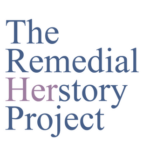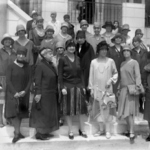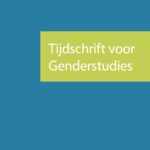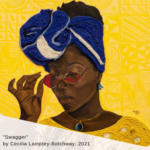 Remedial Herstory: A Journal of Women’s History for Educator (Web)
Remedial Herstory: A Journal of Women’s History for Educator (Web)
Proposals by: 31.08.2024
The editors are excited to announce a call for proposals for the inaugural issue of Remedial Herstory – an online, peer-reviewed journal published by the Remedial Herstory Project.
Purpose and Scope
The journal aims to provide a platform for scholarly research on women’s history while striving to make academic content more accessible to educators and their students. We are committed to presenting research that not only explores contributions to the field of women’s history but also pieces that offer pedagogical strategies for educators. Through this dual focus on content and teaching, Remedial Herstory aims to empower educators to bring women’s history to life in their classrooms, inspiring the next generation to value and learn about the important historical contributions of women.
Potential Themes and Topics
Owing to the work of scholars who have launched the field of women’s history over the last half century or so, the editors invite proposals that explore the intricate relationship between theory and practice through both content-based and pedagogical articles. For instance, in the field of early modern Britain, Amy Erickson has argued that a “disjuncture between theory and practice” exists insofar as women were often able to circumvent restrictive legal doctrines through a variety of everyday practices. In other words, she argues, law should not automatically be read as prescriptive of women’s lived experiences. This point extends beyond any one region or time period, and, as such, authors could submit content-based pieces that consider:
– How societal expectations and cultural norms perhaps influenced, but did not entirely dictate, women’s actions and choices.
– The discrepancy between political rights and the real political participation of women. Read more … (Web)
Source: H-Net Notifications

 Wienbibliothek im Rathaus; Katharina Prager
Wienbibliothek im Rathaus; Katharina Prager  Katerina Dalacoura, Vaia V. Geragori, Maria Paitaki, Vasiliki Papadopoulou, and Kostas Tsampouras (Crete), Krassimira Daskalowa and Valentina Mitkova (Sofia), Giorgos Manios (Athens), and Ivana Pantelić (Belgrade)
Katerina Dalacoura, Vaia V. Geragori, Maria Paitaki, Vasiliki Papadopoulou, and Kostas Tsampouras (Crete), Krassimira Daskalowa and Valentina Mitkova (Sofia), Giorgos Manios (Athens), and Ivana Pantelić (Belgrade)  Tijdschrift voor Genderstudies
Tijdschrift voor Genderstudies  2024 Roundtable for Black Feminist & Womanist Theory
2024 Roundtable for Black Feminist & Womanist Theory  Österreichische Gesellschaft für Geschlechterforschung (ÖGGF)
Österreichische Gesellschaft für Geschlechterforschung (ÖGGF)  Gender Campus
Gender Campus